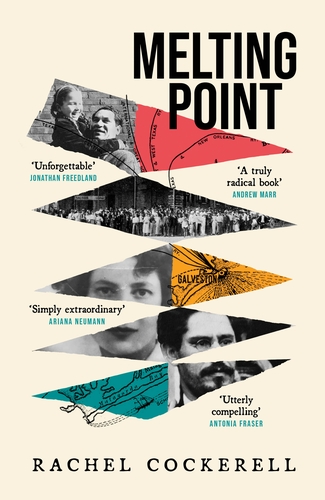What do you think?
Rate this book


416 pages, Kindle Edition
First published February 29, 2024
The [play] may very well be good something, but it isn't good theater.Finally, we move to Britain in the 1930s and 40s as the author's grandmother and great-aunt raise their families together, surviving WWII and witnessing the birth of Israel. This section has the most intimate feel, as Cockerell personally interviewed several of her surviving relatives.
The author's name is Em Jo Basshe. It is the kind of play you would naturally expect a man with a name like that to write.
The [main character]suffered almost as much as his audience.*